Crucial BX100 (120GB, 250GB, 500GB & 1TB) SSD Review
by Kristian Vättö on April 10, 2015 1:20 PM EST- Posted in
- Storage
- SSDs
- Crucial
- Micron
- Silicon Motion
- BX100
- SM2246EN
- Micron 16nm
AnandTech Storage Bench - The Destroyer
The Destroyer has been an essential part of our SSD test suite for nearly two years now. It was crafted to provide a benchmark for very IO intensive workloads, which is where you most often notice the difference between drives. It's not necessarily the most relevant test to an average user, but for anyone with a heavier IO workload The Destroyer should do a good job at characterizing performance. For full details of this test, please refer to this article.
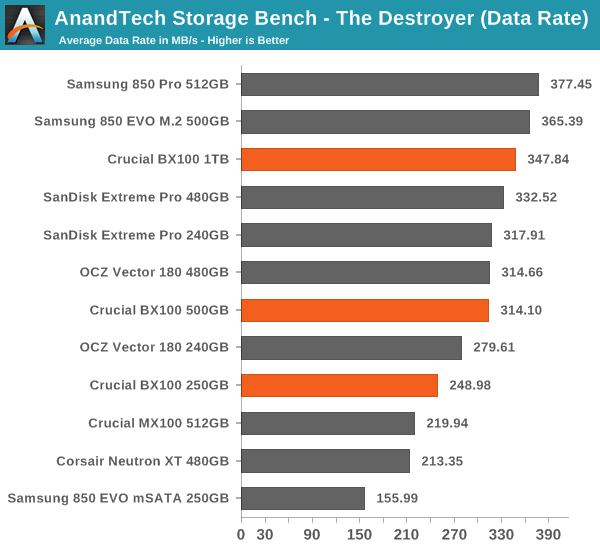
Despite the lack of IO consistency, the BX100 does very well in our heaviest The Destroyer trace. It's easily faster than the MX100 and quite close to the higher-end SSDs as well in both data rate and latency.
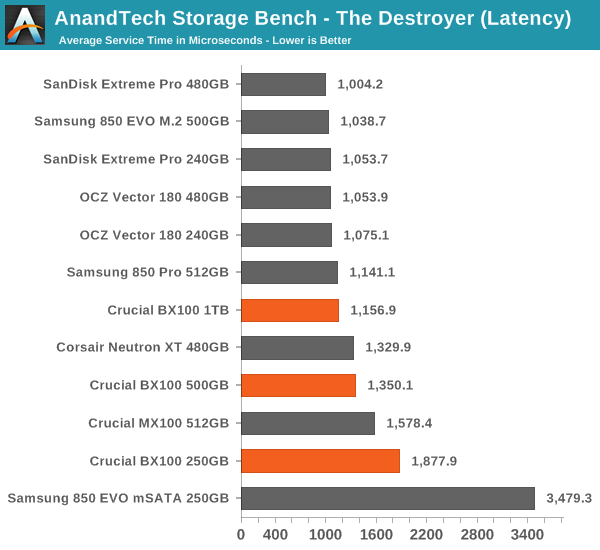
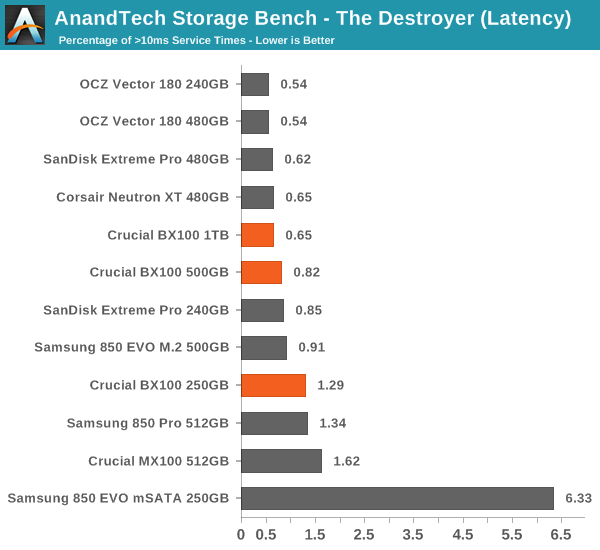
The share of high latency IOs is very reasonable too, suggesting that the consistency is fine under real-world workloads.
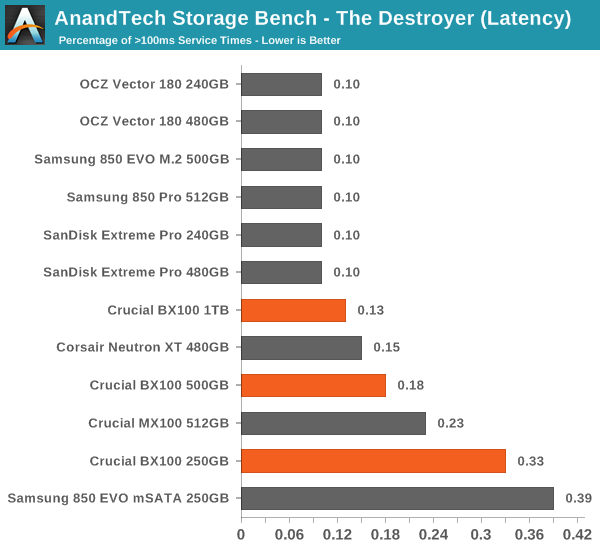
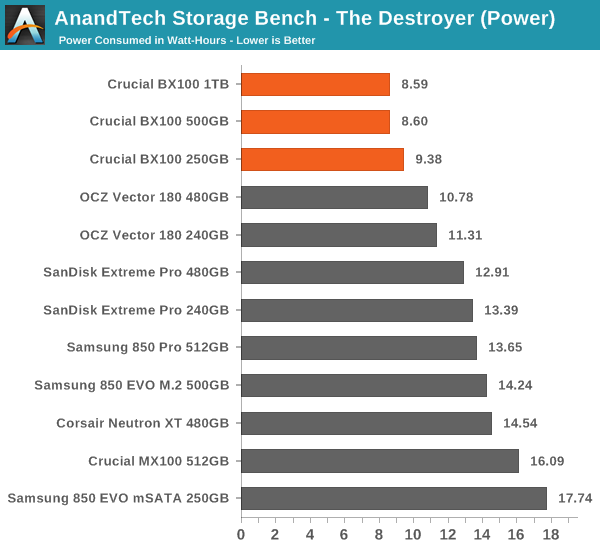
And finally the power consumption where the BX100 shines in. Even though it's not the fastest drive on the market, it's by far the most power efficient and the difference to the MX100 is nearly twofold.










67 Comments
View All Comments
stickmansam - Friday, April 10, 2015 - link
Any thoughts on how performance would be like if the BX100 didn't have the Samsung like OP?bricko - Friday, April 10, 2015 - link
Been researching ssd for a bit, these seem ok, but after watching the Intel discussion of their massive new Intel 750 NVMe, PCIe 3, 1.2 Tb will make one cry, 2-4 times the speed of these old SATA stuff. Half height card for pcie slot. But massive cost, like 1100 for the 1.2 Tb, but the charts are scary. Better with new X99 mobohttp://www.pcper.com/reviews/Storage/Intel-SSD-750...
http://www.anandtech.com/show/9090/intel-ssd-750-p...
Sunburn74 - Saturday, April 11, 2015 - link
But no real world performance benefit for 99% of us.just4U - Friday, April 10, 2015 - link
I think the only real problem I have with the BX100 is ... believe it or not pricing. Here in Canada I've bought 4 of these drives but I've had to scour the net for price match deals to even come close to the MX100 which.. actually was 10-20% lower in costs. Ticks me off really.. their coming close to price parity with the older model but still not there yet.. The Sandisc Ultra2 is cheaper but it's almost always out of stock.. they tried to price this damn thing like the higher end drives. :(stickmansam - Saturday, April 11, 2015 - link
Canada has always suffered by worse off pricing and stock issues.frombauer - Saturday, April 11, 2015 - link
Would this be a tangible empirical upgrade over a 256GB Samsung 840 Pro?Margalus - Saturday, April 11, 2015 - link
no, nothing you would be able to notice in usage.Morawka - Saturday, April 11, 2015 - link
whats up with the 850 EVO scores? do you guys only have laptop drives or something? Wanted to see how it compares to a 2.5" 850 Evo, and obviously the Msata scores dont compare to it.Kristian Vättö - Saturday, April 11, 2015 - link
I haven't had time to put the 2.5" 850 EVOs through our new SSD suite yet, but I have the scores for the mSATA/M.2 versions since we just reviewed those. The performance should essentially be the same though since the hardware is no different.Nordlicht - Saturday, April 11, 2015 - link
It would have been nice to have BX100 being compared to Transcend SSD370. Both use the same controller. However, SSD370 uses Micron's 20nm NAND whereas BX100 uses the next generation 16nm. Performance is similar?On the surface the SSD370 could be more reliable due to bigger feature size. BX100 commands a small price premium, though.